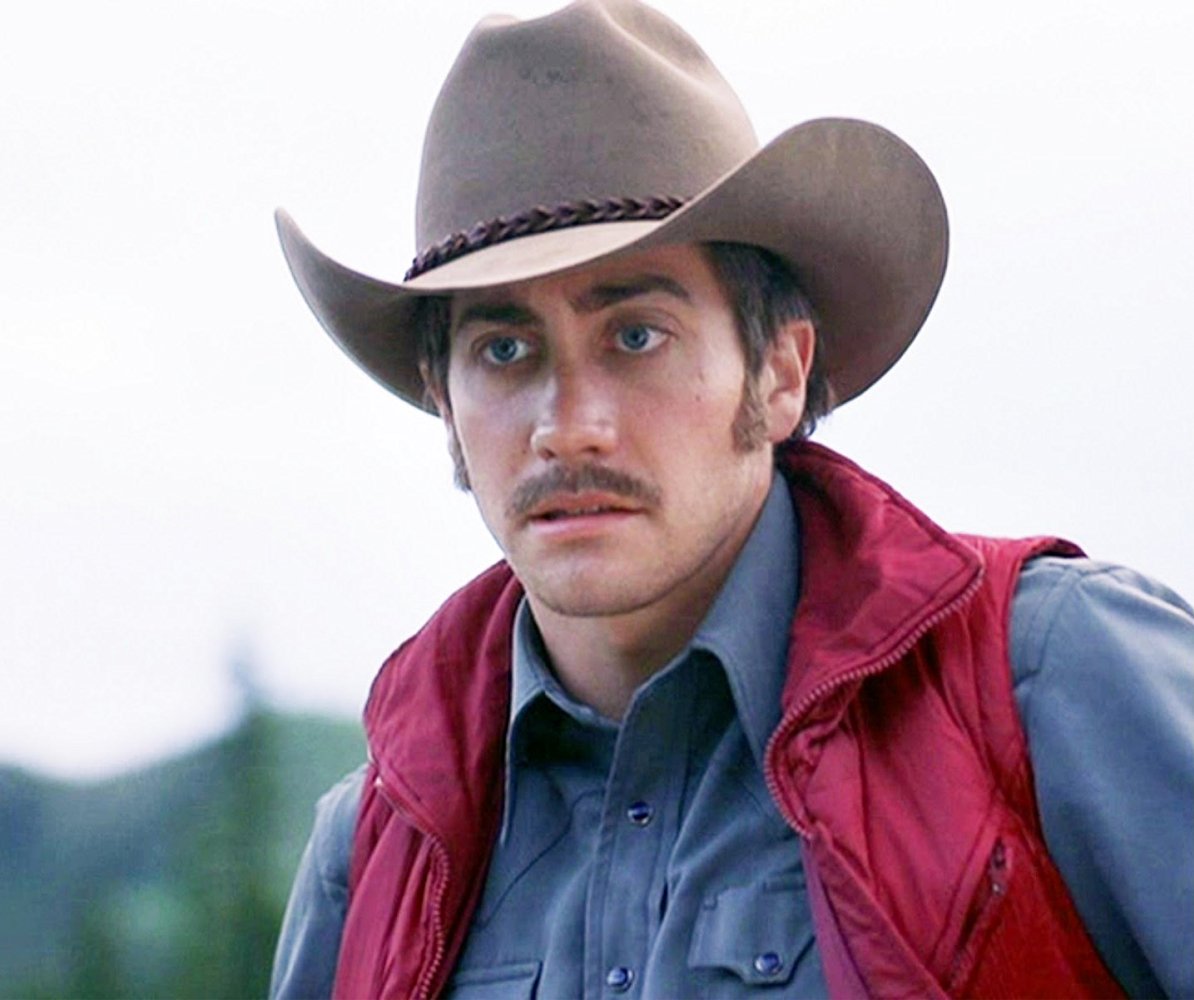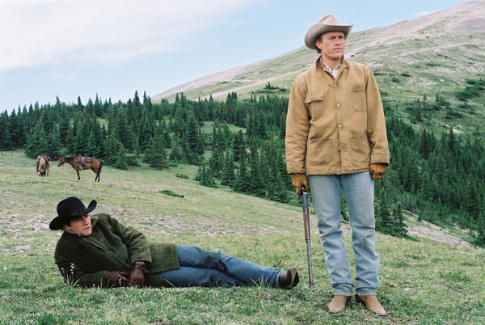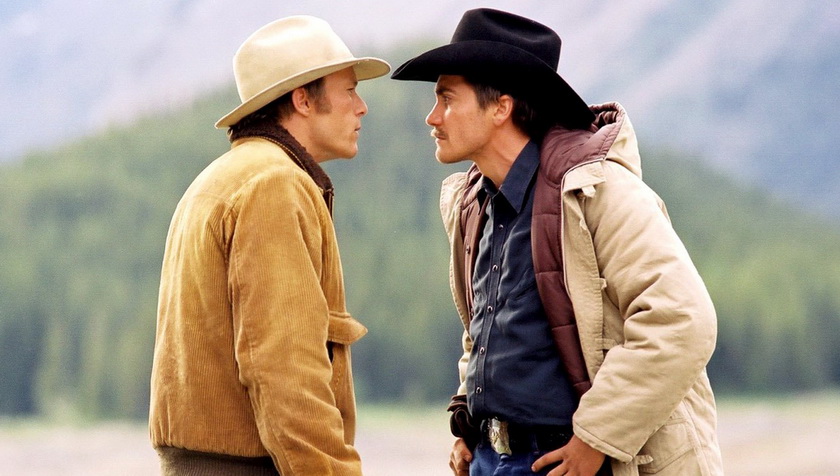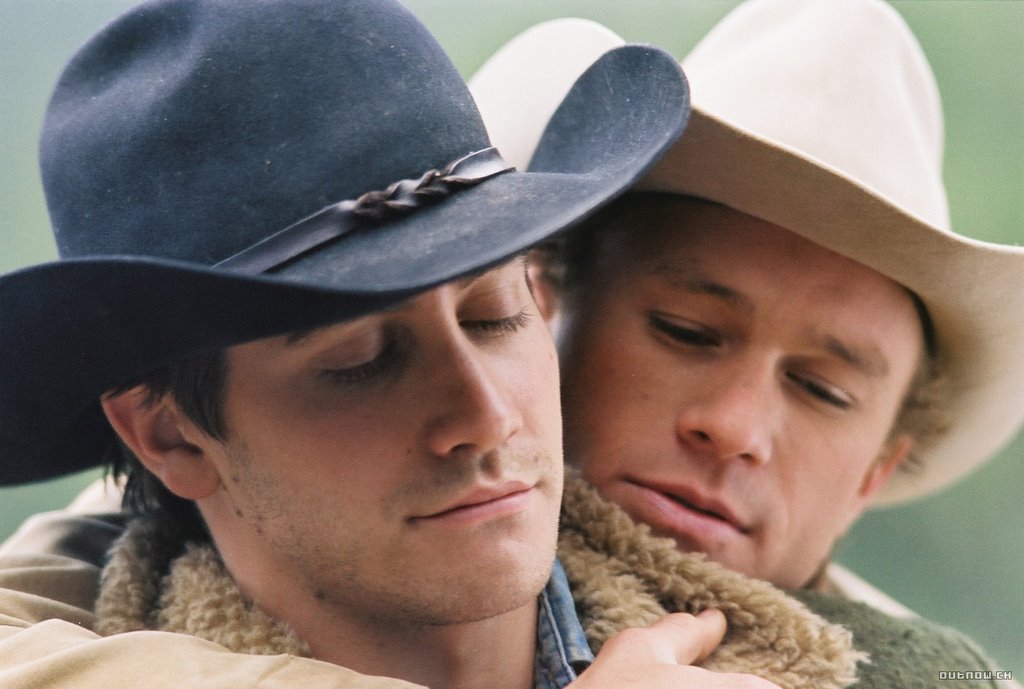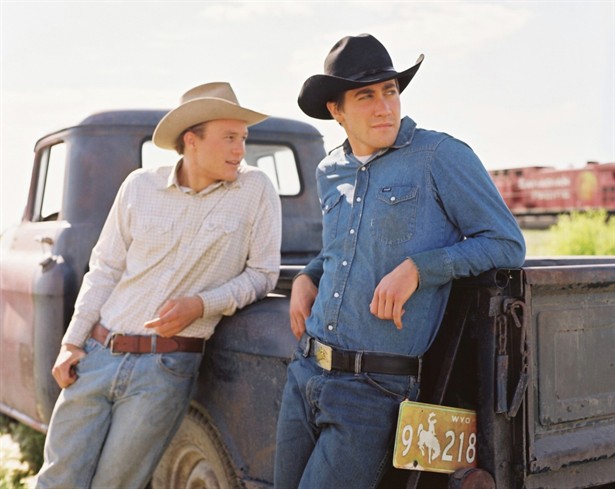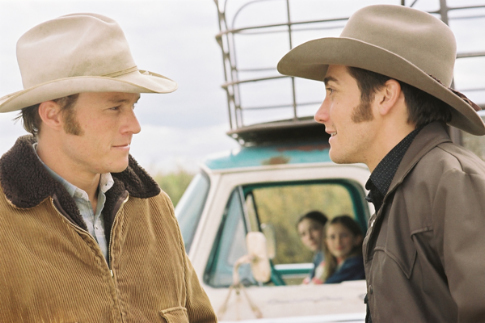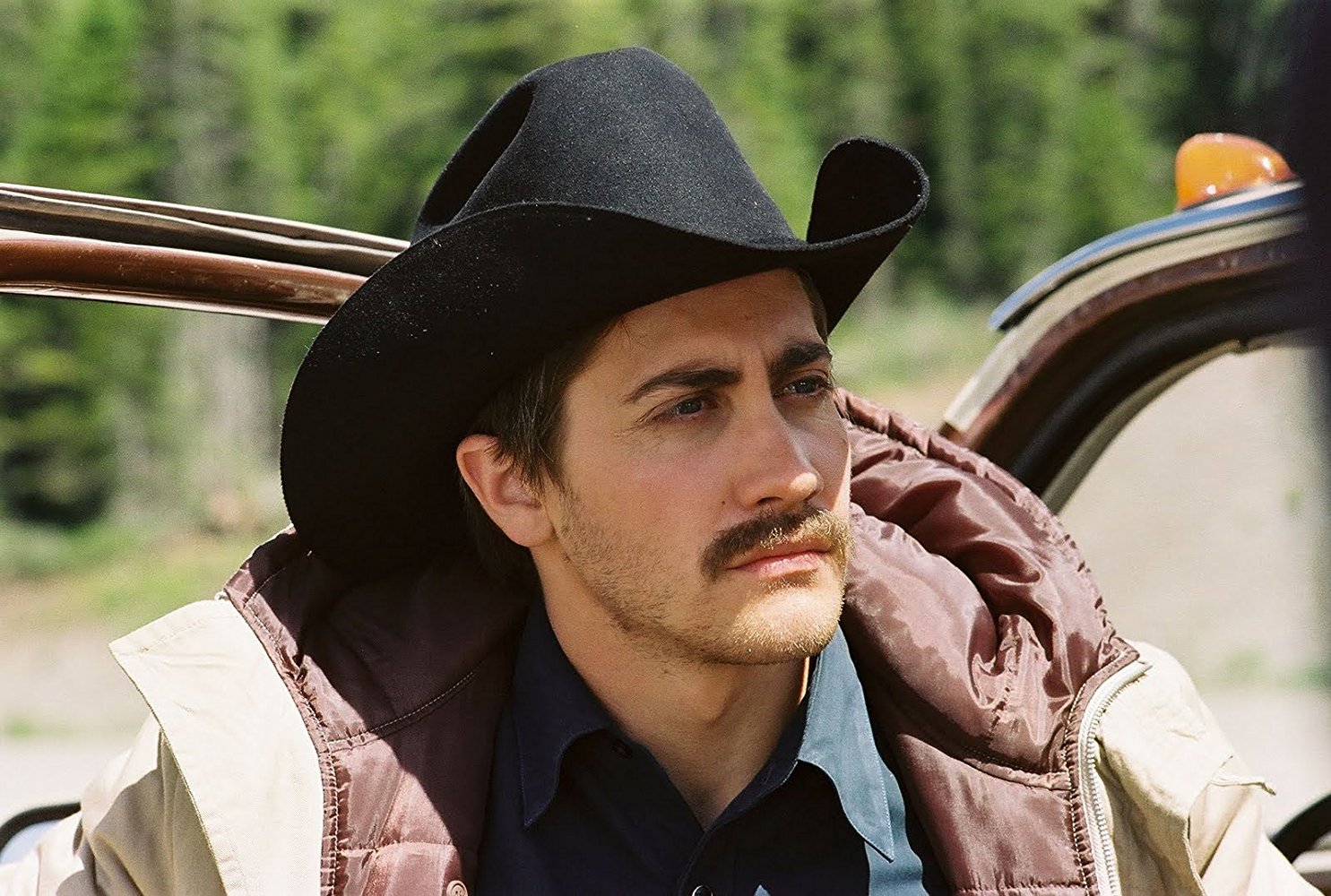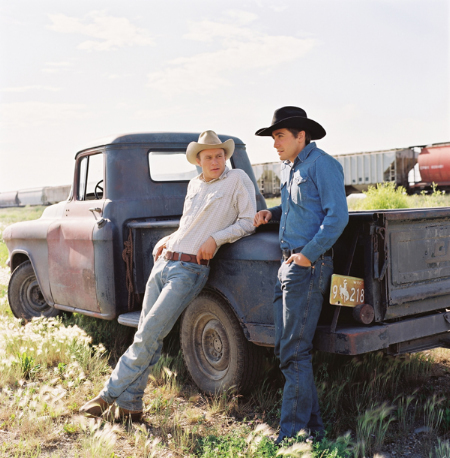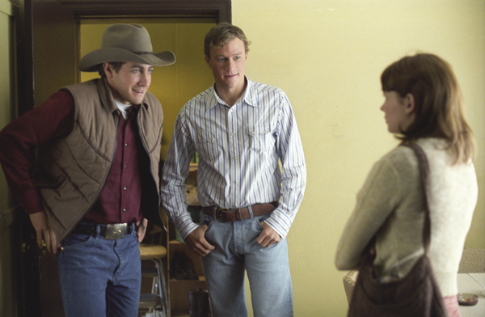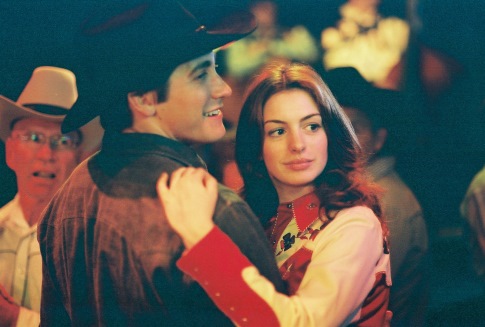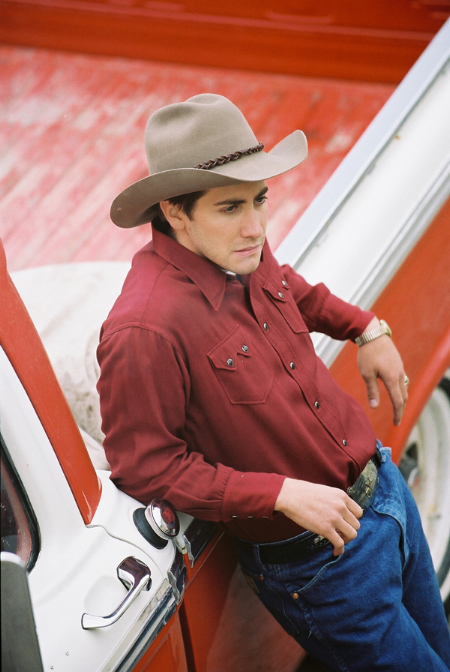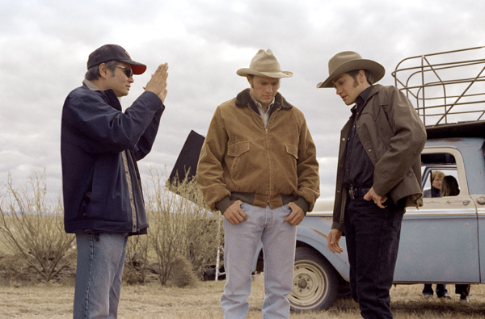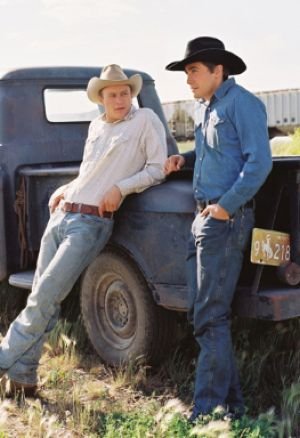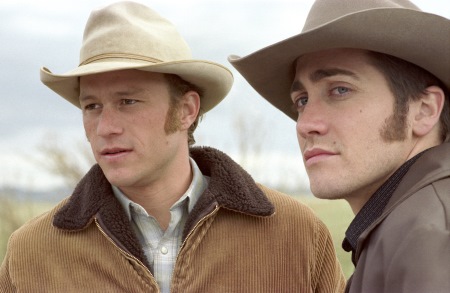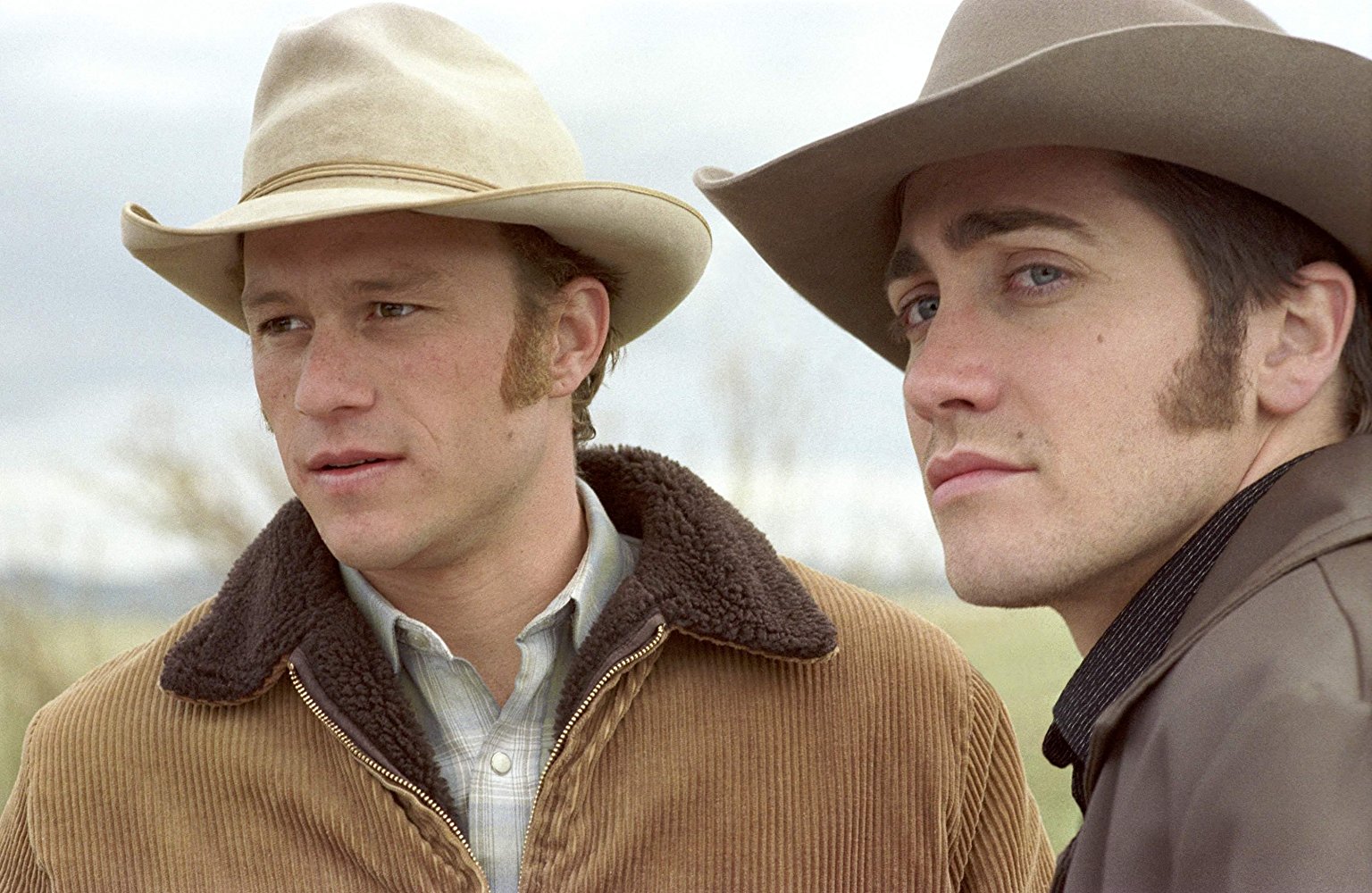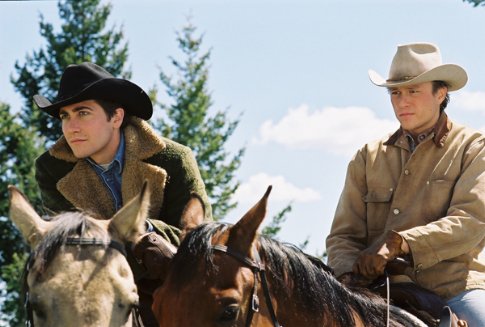Jack Twist was the man from Lightning Flat, a Depression-era farming town near the Montana border in the northeastern corner of Wyoming. The only child of J. C. Twist and his wife, Jack had a lonely childhood, often staring out of the second-floor window of his home past the barn at the zigzag road that led away from his stark existence. We first meet him in the opening paragraph of Annie Proulx's masterpiece, Brokeback Mountain, a novella that was first published in the New Yorker magazine on October 13, 1997. The story achieved instant and wide acclaim, in no small part due to Proulx's characterization of Jack, who she described as a confused ranch boy trying to balance his inner desires with the rigid constraints of rural Wyoming society. He is a man of many conflicts and mysteries, as seen in the questions and controversies mentioned below.When it was first published, the story was read by producer/writer Diana Ossana, who shared it with their writing partner, the Oscar-winning author Larry McMurtry. After a long struggle, the movie Brokeback Mountain was made in 2005, achieving wide acclaim and enjoyed standing room only performances. The movie garnered Oscars for its director Ang Lee, screenwriters Ossana and McMurtry, and musical director, as well as a Best Supporting Actor BAFTA award for Jake Gyllenhaal, who portrayed Jack Twist.When he was 18 years old, Jack worked during the summer as a shepherd on Brokeback Mountain, located somewhere in the central part of Wyoming. There is a Brokenback Mountain on the western side of the Big Horn Mountains, but Proulx has always maintained that this and other sites mentioned in the story are fictional. He returns in 1963 for a second summer of shepherding, where he meets Ennis del Mar, another 19-year-old from Sage, a small hamlet in the opposite corner of the state, in the Red Desert area near Utah.Ennis has applied and been accepted for the second position of shepherd. In the beginning, Jack wants to reach out to Ennis, and begins to walk right up to him. But, Ennis lowers his head and covers his face with his hat brim, blocking Jack off. Jack, rebuffed, goes back to the shelter of his truck, and spruces up, sneaking glances in his rear-view mirror while he shaves. The foreman, Joe Aguirre, brusquely calls the two men into his trailer and assigns Jack the role of the herder, while giving Ennis the more senior job of the camp tender. Aguirre confers even more power on Ennis while lecturing to Jack, pointing to him and ordering him to break the rules by pitching a pup tent on the QT against Forest Service regulations. This demotion may be humiliating to Jack with his previous experience, but he keeps silent during Aguirre's instructions. Aguirre further admonishes Jack to sleep with the sheep, a hunerd percent, travelling down the mountain to the camp twice a day to get breakfast and dinner. Jack is denied the comforts of the camp tent, camp fire, and companionship, having to keep watch with his gun for coyotes that might prey on the sheep. As they are leaving the trailer, Jack reaches out to Ennis again. Once again, Ennis rebuffs Jack by only giving his first name.The two men retire to a bar in the town of Signal (possibly modeled on Ten Sleep, Wyoming) to wait for their start of work the next day. Jack reveals an outgoing personality, showing interest in the reticent Ennis, drawing him out of his shell. His body language also reveals that he is very interested in Ennis on several levels, while Ennis's gestures and eye contact respond positively, though he maintains a cowboy's manly reserve. Thanks to Jack's subtle encouragement, the two men start to reveal their inner selves to each other. We learn of Jack's chafing against authority, no doubt stemming from his difficult relationship with his tyrannical father, a bitter rancher. We also learn that Jack is crazy about his new career as a rodeo bull rider. It's a difficult, injury-prone job that takes him from small town to small town but provides a modest income and what Jack desires most: freedom. Why he is shepherding rather than rodeoing this summer is only hinted at: perhaps he is inept in rodeo as well as other activities that Western men are supposed to excel in.As the two men drive the herd of sheep up the mountain and establish camp, they are presented as a study in contrasts. Ennis calmly sits astride his horse and whistles instructions to the blue heeler shepherd dogs while Jack dismounts to carry some of the reluctant ewes over a stream. As he hefts the wriggling sheep over his shoulders, we get a glimpse of the mythical Jack, echoing an ancient statue of a shepherd from Assyria. Biblical allusions are also present, but Jack makes an unlikely Christ figure, with his swearing, swigging of whiskey, and constant smoking of cigarettes. He is also full of complaints, mostly against Aguirre, the Forest Service, and society in general. As the herder, Jack has to spend long hours away from camp, and he often looks down on Ennis's night fire. Hoping to get more of Ennis's companionship, Jack complains about the work arrangement, but instead Ennis dictates that the men should switch roles and Ennis should take control of the herd and the gun. Jack feels the balance of power changing. He adopts a blustery front for Ennis, toting sheep across the stream, schlepping water.As the men settle into their new roles, Jack's friendship stirs Ennis's buried feelings more and more. While riding back to the sheep one night after sharing talk and whiskey around the campfire, Ennis realizes that he's having such a good time, it feels like he could paw the white out of the moon. Suddenly one night, fueled by alcohol, their relationship becomes sexual. Jack faces this new turn of events fearlessly, all the while agreeing with Ennis that I aint queer . Ennis and Jack become a couple for the rest of the summer, with much joking and horseplay, mutual support, joint problem-solving, rough sex, and the occasional tender moment and heartfelt conversation.For all his posturing as a rough, tough cowboy, Jack is perceptive and thoughtful when it comes to Ennis. He defers to Ennis and lets him call the shots. Ennis's true self is much too repressed to be able to reciprocate with Jack, however, so a disconnect begins to develop between them. Ennis is pretty much in total control by the time he shoots an elk for Jack because he is tired of Jack's dumbass missing. He also maligns Jack's harmonica playing and his rodeo experience, quoting his father saying that rodeo cowboys was all fuckups. Because of Jack's deepening feelings for Ennis, he endures and overlooks the insults.In mid-August a sudden snowstorm brings the men's idyll to an end. Jack is unconcerned because he expects to continue their relationship, but Ennis is devastated because, subconsciously, he knows what Jack would say 20 years hence-- all we got is Brokeback Mountain --is true. Jack resumes his rodeo career and unsatisfying visits with his parents. He is swept into a Texas marriage, adding a child and a job working for his father-in-law. But the memory of the summer of 1963 pulls him back to Ennis after four years. He then becomes Ennis's fishing and hunting buddy, acquiescing to Ennis's desire to keep their relationship hidden. Ennis keeps him on a short leash until Jack erupts one day in frustration and the two men part badly. But Jack says, I wish I knew how to quit you and conveys his lifelong commitment to the friend whose fears and limitations he has come to understand.On a symbolic level, Jack is associated with air, water, the color blue, and winged creatures. He plays the harmonica, an air instrument, very badly, and Ennis kids him about scaring the sheep. He wears an eagle feather in his hat, and his iconic shirt is blue denim. Coat hangers, spoons, tire irons, washboards, shepherd's crooks, turkey basters, electric knives, and fans show up in the movie and story to flesh out Jack's mythology. Jack's home of Lightning Flat echoes throughout his life story. He tells Ennis of his first year shepherding on Brokeback when lightning struck and killed 42 sheep, angering Aguirre. As if I could control the weather, he states exasperatedly. His beloved harmonica is flattened by a throw from his horse, but Jack continues to play it anyway. In the penultimate reference to flatness, Jack is purportedly killed when he tries to change a flat tire and it blows off the rim at him, knocking him over and breaking his jaw so that he dies choking on his own blood. These events ping not just on lightning and air but also have a strong religious tone, further setting up Jack as a Christlike figure.Jack takes rejection admirably well, considering how often it is doled out to him. He doesn't let Ennis's ribbing get to him and he picks himself up out of the dirt when the bulls throw him in the rodeo ring. He doesn't let humiliation by Aguirre or the rodeo clown Jimbo deflate him. He withstands his father-in-law's ridicule and that of the Childress community for about a decade before losing his temper. He is actually a resilient person considering all that he endures. But the experience of Brokeback Mountain and his relationship with Ennis is his primary source of strength--the knowledge that at one time and in one place he was unconditionally loved and accepted. Jack often flashes back to an artless moment of pure joy on Brokeback when Ennis came up behind him and embraced him as he stood dozing in front of the campfire.Jack's use of language provided other clues to his personality. He was fond of double and triple negatives such as I don't hardly never get . In an attempt to impress Ennis, he would attempt words he hadn't mastered such as referring to his cracked vertebrates (Jack literally was brokenback). Perhaps the two greatest puzzles about Jack were how he died and whether he was gay. Jack was married and fathered a child, but it is clear that he was attracted to Ennis and to other men. Many gay men have relationships with women so the answer depends on what your definition of gay is. The circumstances of Jack's death are left to the imagination. Jack's wife Lureen relates the story of Jack dying via an exploding tire but her demeanor makes Ennis think she is not telling the truth. Based on Ennis's fears and prejudices, he imagines Jack being beaten with a tire iron.Jack reveals his true nature after death, when Ennis visits his boyhood room and finds that Jack has kept hidden a shirt stolen from Ennis 20 years earlier. Jack has secreted the shirt, stained with Ennis's blood during a short tussle, tucked within his own blue denim shirt in a nook inside a closet. The shirts, hung on a wire clothes hanger, not only complete the Biblical allusion but call to mind an eternal embrace that is even more poignant for its furtiveness. Jacks and Ennis's shirts travel home with Ennis in a paper bag given to him by Jack's saintly mother, there to haunt Ennis's dreams for the rest of his dreary solitary life.
Show less «

